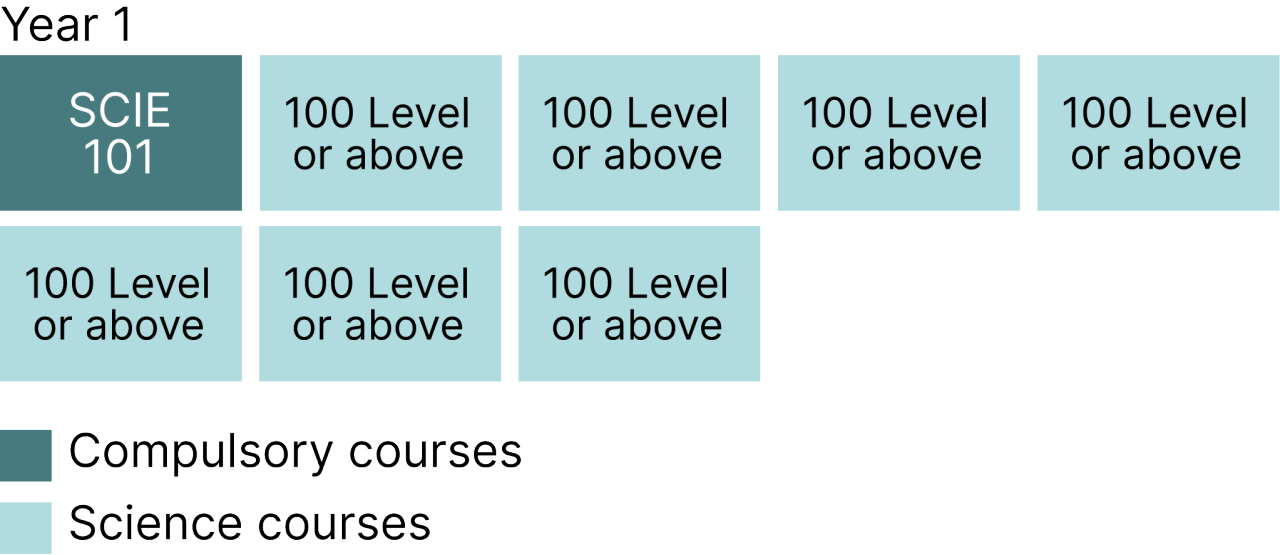Diploma in Science
- Degree Structure - Start In
- Semester 1 or 2 (February or July)

A Diploma in Science (DipSc) is a great way to learn a variety of scientific skills in one year. Find out about studying a DipSc through our Te Kaupeka Pūtaiao | Faculty of Science.
120
A Diploma in Science (DipSc) is a great option to learn a variety of scientific skills in a single year.
This Diploma allows you to study interesting science courses, upskill in new areas, and gain professional development in your career.
Admission to UC with University Entrance (or equivalent) is required to enrol.
If English is your additional language, you are also required to meet UC's English language requirements.
See Admission and enrolment for all information on enrolling at UC.
The DipSc is made up of 120 points, including a compulsory course and subject options from the Bachelor of Science.
It can be completed within 1 year full-time, or up to 6 years part-time.
You can choose to transfer the credits you gain during the Diploma in Science to the Bachelor of Science (and some other degrees), as long as you have not already graduated with the Diploma.
For the full degree requirements, see the Regulations for the Diploma in Science.
2024 tuition fee estimate: $7,822 (120 points)
2025 tuition fee estimate: $8,291 (120 points)
2024 tuition fee estimate: $39,900 per 120 points
2025 tuition fee estimate: $41,500 per 120 points
2024 SSL: $9.17 per point ($1,100.40 for 120 points)
2025 SSL: $9.72 per point ($1,166.40 for 120 points)
Complete the following course:
Plus choose up to 105 points of courses from the following subjects:
Find out more about what can you do with a degree from UC.

Each small block represents a 15-point course. However, some courses may be 30 points or more.
This diagram is an example only – other combinations are possible. For specific course requirements, see the Regulations for the Diploma in Science.
By clicking "Accept All Cookies", you agree to the storing of cookies on your device to enhance site navigation, analyse site usage, and assist in our marketing efforts.
0800 827 748 (within NZ)
+64 3 369 3999
Ext: 92111 (from a campus landline)
Direct dial: 0800 823 637
University of Canterbury | A Fair Trade University
